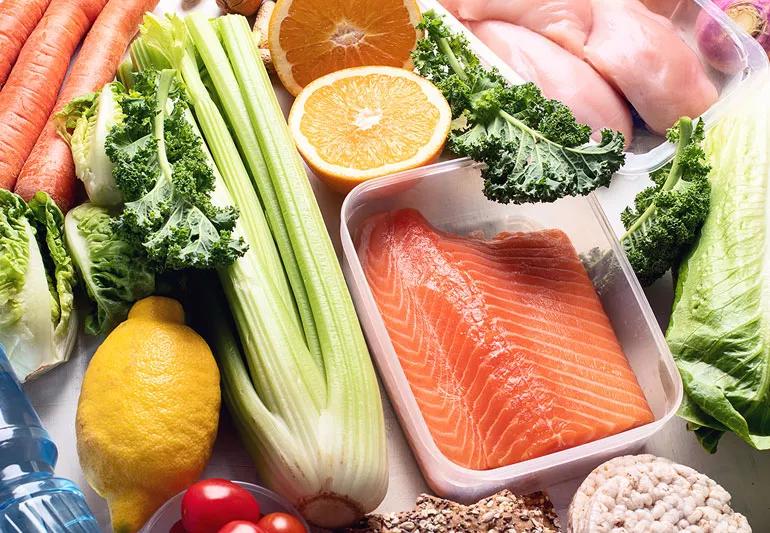Foods and supplements that support your body

Image content: This image is available to view online.
View image online (https://assets.clevelandclinic.org/transform/02b571d0-dc88-4bb1-b4c9-b8abb4508ec9/foodFightInflammation-1074473124-770x533-1_jpg)
foods that fight inflammation salmon eggs veggies skinless chicken
The health benefits of choosing whole foods like fruits, vegetables and whole grains over processed foods are nearly endless. One of the primary benefits of these nutrient-rich foods is that they can reduce inflammation in the body.
Advertisement
Cleveland Clinic is a non-profit academic medical center. Advertising on our site helps support our mission. We do not endorse non-Cleveland Clinic products or services. Policy
“Exercise can cause acute or short-term inflammation, which is normal,” says sports health dietitian Kate Patton, MEd, RD, CSSD, LD. “A proper diet helps keep this inflammation under control.”
What is most concerning is the potential for chronic inflammation as a result of poor diet, stress and/or improper or overtraining in those who exercise vigorously. This combination puts you at higher risk for injury and illness. Reducing inflammation in your body can help you train more consistently, recover faster from injuries, perform at your highest level and ultimately prevent chronic disease.
Foods that fight inflammation include a mix of carbohydrates, protein and fat since they’re your sources of energy (carbs), the building blocks of cells (protein) and the means to absorb vitamins (fat). Both vitamins and minerals play a crucial role in muscle contraction, blood flow, tissue repair and healing.
Patton outlines nine recommendations for foods that decrease inflammation:
Advertisement
Here are some recommendations that work best for people who exercise vigorously:
“It’s important to consider carefully the way you fuel your body,” she says. “A proper diet and supplements will help keep inflammation under control.”
Advertisement

Sign up for our Health Essentials emails for expert guidance on nutrition, fitness, sleep, skin care and more.
Learn more about our editorial process.
Advertisement
When it comes to getting proper nutrition, your assigned sex can play a role — but there’s more to it than that
Ground flaxseed is full of heart-healthy omega-3s, antioxidants and fiber, and easy to add to just about any recipe
From meat to beans, we’ve got some ideas to help you create the perfect-for-you chili recipe
Only 130 calories per serving, this dessert deserves your attention
Nutty, fruity and so good for you
Plan ahead, bring a cooler when possible and don’t forget the water!
A delicious twist on grilling
A cool, refreshing and satisfying salad!
Type 2 diabetes isn’t inevitable with these dietary changes
Applying a hot or cold compress can help with pain
Pump up your iron intake with foods like tuna, tofu and turkey